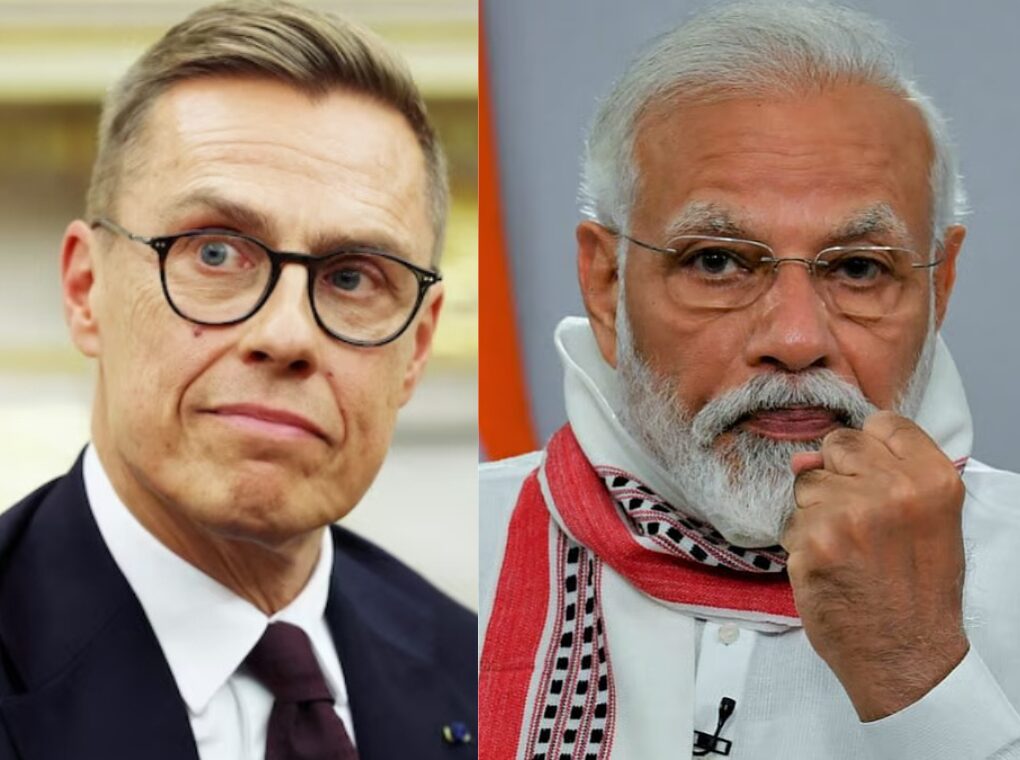In a powerful endorsement of India’s global rise, Finland’s President Alexander Stubb has declared that India is poised to become the world’s next superpower — alongside the United States and China — and that the United Nations (UN) will continue to weaken unless India is given a permanent seat on the UN Security Council (UNSC).
Speaking in an exclusive interview with Firstpost Managing Editor Palki Sharma in Helsinki, President Stubb praised India’s strategic depth, balanced foreign policy, and growing global influence. He also underlined that multilateral institutions like the UN risk losing credibility if they fail to reflect today’s geopolitical realities.
India: The Next Global Superpower
“I am a great admirer of India,” Stubb said, emphasizing that “India will be our next superpower, right up there with the United States and China.”
According to the Finnish leader, India’s political leadership — led by Prime Minister Narendra Modi and Foreign Minister S. Jaishankar — has demonstrated exceptional strategic thinking through a multi-vector foreign policy that balances diverse global relationships.
“What India is doing now reflects confidence, maturity, and strategic vision,” he said. “It’s understandable that India engages with multiple powers simultaneously — that’s how a true global actor behaves.”
Stubb described India as a “rising pillar of global power”, arguing that its growing influence in technology, defense, and economic affairs positions it as a defining player in the 21st century world order.
UN Will Continue to Weaken Without India
In his remarks, President Stubb made a strong case for UN reform, particularly the expansion of the Security Council, which currently has five permanent members (the US, UK, France, Russia, and China).
“I have said this in the General Assembly twice now,” Stubb noted. “I want the UN Security Council to be expanded. Its membership should be at least doubled. It is wrong that countries like India are not in the Security Council.”
The Finnish President proposed that a restructured UNSC should include one member from Latin America, two from Africa, and two from Asia, ensuring fair regional representation.
He warned that without such inclusivity, the UN risks losing relevance and legitimacy.
“If players like India don’t feel they have agency or skin in the game, the institution is going to continue to weaken,” he cautioned.
India’s Role in Global Stability and Growth
President Stubb underscored that India’s actions and policies now shape global outcomes, from climate change and energy transition to trade and security.
“What India does matters to the world,” he stated. “Its size, economic power, and strategic partnerships make it indispensable to global stability and prosperity.”
He praised India’s ability to act as a bridge between the Global North and the Global South, saying that New Delhi has emerged as a responsible stakeholder that promotes dialogue and peaceful cooperation.
Finland, Stubb said, views India as a key partner in building a rules-based international order rooted in cooperation and shared values.
A Call for Modern Multilateralism
Reiterating his long-standing support for multilateral reform, Stubb said that institutions like the UN must evolve or risk becoming obsolete.
“I believe in multilateralism. And for multilateralism to work, India must be inside the system — not outside looking in,” he said.
His remarks reflect growing international consensus that the post-World War II institutions no longer represent today’s power balance. India, the world’s most populous democracy and fifth-largest economy, has long campaigned for UNSC reform under the G4 grouping — alongside Japan, Germany, and Brazil.
However, efforts for reform have repeatedly stalled due to political resistance from existing permanent members and lack of consensus among the wider UN membership.
Global Recognition of India’s Strategic Rise
President Stubb’s remarks come amid a broader global recognition of India’s strategic and diplomatic ascent.
Under Prime Minister Modi’s leadership, India has taken an assertive stance on global issues — from leading G20 discussions on digital inclusion and green energy, to balancing relationships between Washington, Moscow, and Beijing.
India’s growing defense capabilities, economic resilience, and leadership in the Global South have cemented its role as a major world player.
For countries like Finland — now a NATO member and a strong advocate of democratic multilateralism — India’s inclusion in the UNSC represents not just fairness, but strategic necessity.
What next? A New Era of Global Order
President Stubb’s remarks signal an evolving global acknowledgment — that India’s rise is not just inevitable, but essential for a balanced and effective international system.
By calling India the “next superpower” and backing its bid for permanent UNSC membership, Finland’s President has added a powerful European voice to the growing chorus urging global governance reform.
In his words, the message is clear:
“If India is not inside the UN’s core decision-making, the United Nations will continue to weaken.”
India’s path to becoming a superpower — and a permanent voice at the world’s top table — may be long, but it is now undeniably a global expectation.
